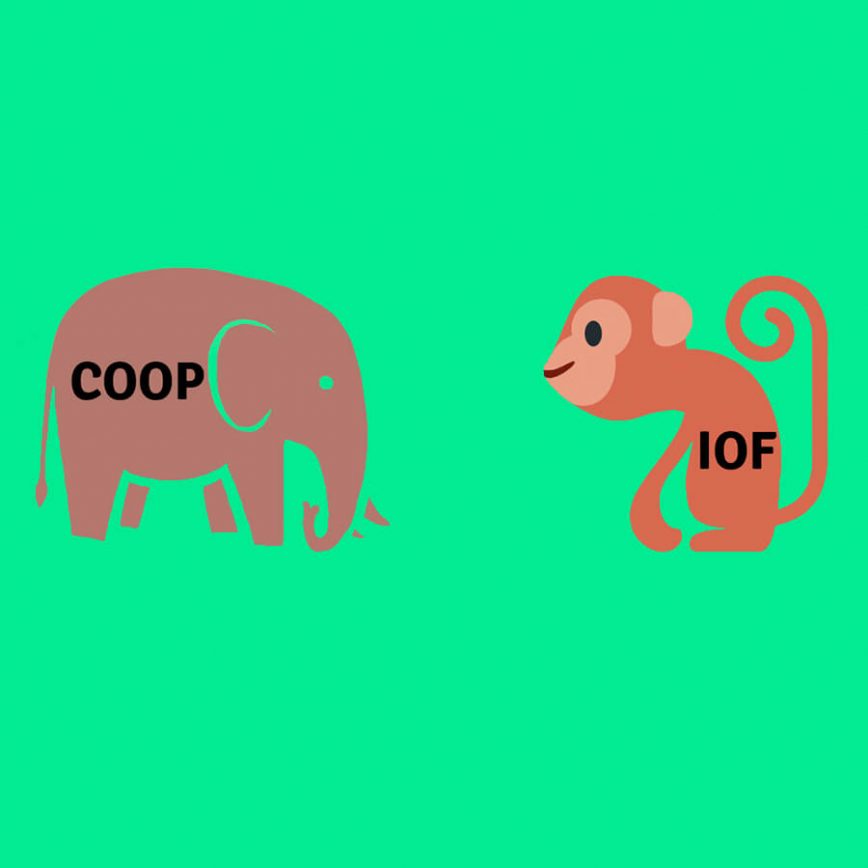In a normal business forum, it is common for people from large corporations or businesses to hear with regreat that you represent a cooperative. It’s logical, they say, to be a large private company, an “Investor Oriented Firm” (IOF), that assumes great risks and makes quick decisions. Cooperatives are considered to be the clumsy cousins of the business sector. It seems that, if you are not an IOF, you suffer an inherent business disability.
That is how even the most prestigious business schools present their vision of a cooperative. They tiptoe around the cooperative business model as if it were something not worth our time to study, as if we need to “COR-poratize” the CO-operatives at all costs in order to avoid worse results. A cooperative model might be reduced to a ten-second spot that says “cooperatives are like IOFs” before returning immediately to the business model they know, the IOF where finances are king, where income exceeds expenses, and where return on investment are the focus. By that model the investor looks only at the returns he can get with this project or that: if the project doesn’t produce income, off he goes to a new more profitable endeavor. It is a “soul-less” corporate model where only the money talks to the IOF. Students coming from the cooperative business model begin to realize that these business schools haven’t any idea what a cooperative proposes to do, and maybe they shouldn’t have bothered coming for this training. Why? Because in a cooperative the king is not only the money, but the relationship between parts.
Don’t get me wrong. A cooperative is also about the money, of course. But that is not the only driving influence. The relationship between the member and the cooperative is more complex. There is a kind of emotional bond that holds the member in the cooperative “in sickness and in health”. Unlike other business models, a member/investor doesn’t just run when times are tough one year. A cooperative supports the bad times on the shoulders of all its members, and the good times as well. They show great resilience and longevity, while corporations, companies and family businesses often come and go.
In a cooperative business model, the provider is also a user of services, the boss also receives his “wages” as a member. He exercises control over the management, the environment, the strategy and the leadership in the cooperative, in a manner which may be incomprehensible or senseless from the IOF point of view. So, far from being a defect in the cooperative model, this interaction between members and services is precisely what makes the cooperative business model different.
It is certainly true that the cooperative model must be competitive in the marketplace, and at the same time it’s true that the consumer doesn’t really care whether his tomato was produced by a cooperative or an IOF. But in fact the majority of fresh produce in Europe comes from cooperatives and not from IOFs.
The marketplace demands competition, but also cooperation. It demands profits, but also needs strong values. It asks not only for rational decisions but also for emotional bonds between providers and clients. Cooperatives offer the corporate world a good product as well as integrated sustainability. They offer a good price as well as a socially diverse economy. That is where cooperatives have their strength. We needn’t apologize when we can offer so much to the marketplace with confidence.


